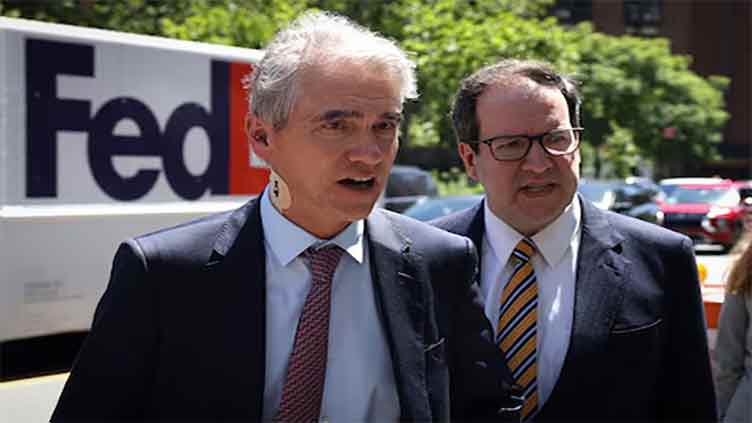Former Allianz employee pleads guilty to fraud over $7 billion funds meltdown

Business
Former Allianz employee pleads guilty to fraud over $7 billion funds meltdown
NEW YORK (Reuters) - A former Allianz (ALVG.DE), opens new tab fund manager pleaded guilty on Friday over his role in a meltdown of private investment funds sparked by the COVID-19 pandemic, and which according to prosecutors caused $7 billion of investor losses.
Gregoire Tournant admitted to two counts of investment adviser fraud, at a hearing before Chief Judge Laura Taylor Swain of the federal court in Manhattan.
Tournant's case stemmed from the March 2020 collapse of the German insurer's now-defunct Structured Alpha funds, which Tournant had created and oversaw as chief investment officer.
The funds once had more than $11 billion of assets under management, but lost about $7 billion in February and March 2020 as the start of the pandemic set off a worldwide market panic.
Prosecutors said Tournant misled investors about the funds' risks by altering performance data and diverging from his promised hedging strategy, and obstructed a U.S. Securities and Exchange Commission probe by directing a colleague to lie.
In May 2022, Allianz agreed to pay more than $6 billion, opens new tab and its U.S. asset management unit pleaded guilty to securities fraud to resolve government probes into the funds collapse. Two other former Allianz fund managers pleaded guilty in the case.
The Structured Alpha funds had bet heavily on stock options, in a manner designed to limit losses in a market selloff, which Tournant likened to a form of insurance.
We have to take diesel off the road in these big vehicles.
Prosecutors said the fraud ran from 2014 through March 2020, with Tournant being paid more than $60 million over that time.
Tournant previously pleaded not guilty to five criminal counts including investment adviser fraud, securities fraud, conspiracy and obstruction.
He had also accused the law firm Sullivan & Cromwell, which had represented him and Allianz, of making him a scapegoat after Allianz decided to cooperate with federal prosecutors.


